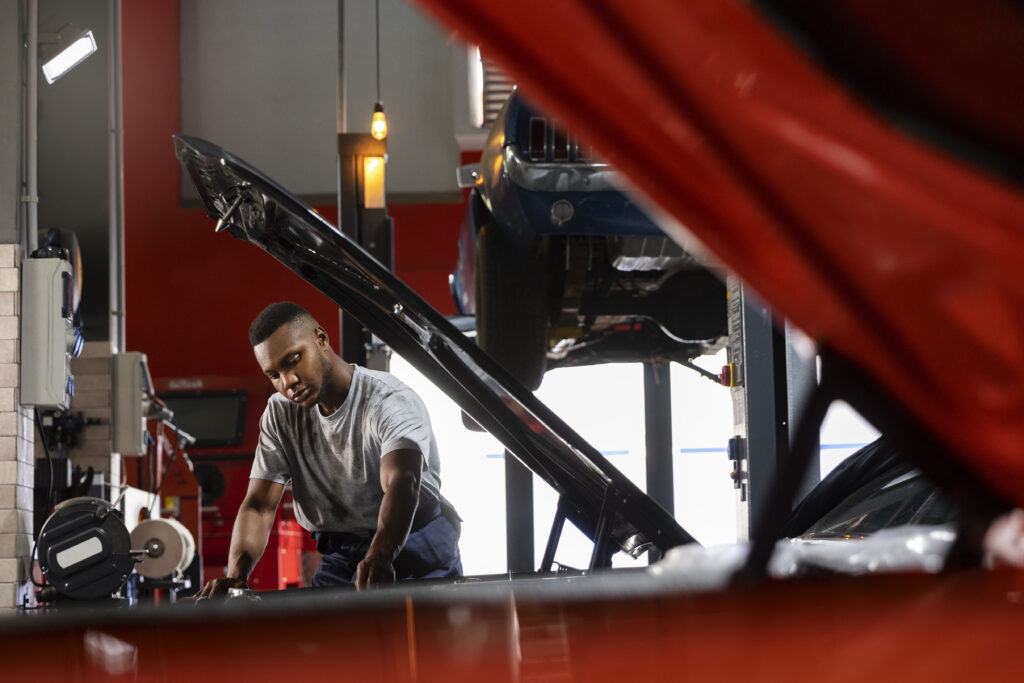If I were President, I would do what no other leader has dared to do — break Kenya free from outdated car policies that make us poorer while enriching our neighbors. Every month, 6,500 Kenyans pay up to KSh 700,000 more for the same cars that Ugandans and Tanzanians buy for less. Why? Because of an outdated, 25-year-old policy that has never been wisely revised to match modern realities. Today, I am about to share a disruptive idea that can shake the automotive industry, create millions of jobs, and finally put Kenya first.
For decades, Kenya has enforced an 8‑year age limit on imported vehicles, claiming to ensure quality, safety, and environmental compliance. Meanwhile, neighboring East African countries allow much older imports. As a result, a Kenyan farmer pays about KSh 1.4 million for a 1500cc vehicle, while an Ugandan counterpart buys the same car for around KSh 700,000. This disparity weakens Kenya’s competitiveness and shifts wealth to our neighbors. The rigid restriction shrinks the pool of affordable cars, driving up costs and hurting small businesses, farmers, and low-income earners. If we believe in economic empowerment, why make transportation so expensive?
I dare say that Kenya’s 8‑year rule is rooted in outdated policies and hidden interests embedded in the KS 1515:2000 standard — designed for a different automotive era. Why hasn’t this old framework been wisely updated? Studies, including the WHO Global Status Report on Road Safety 2023, confirm that vehicle age isn’t the key safety factor — braking systems, stability control, and road conditions matter more. Emissions should be managed through regular inspections, not arbitrary bans.
Instead of restricting car imports based on age, Kenya should introduce an inspection-based regulatory framework. For instance, new vehicles would undergo their first inspection after five years, eight-year-old vehicles every three years, and those over ten years old annually. This system would make cars more affordable while ensuring safety and environmental compliance. Additionally, Kenya should adopt an emission-based zoning system, where vehicles that do not meet set emission standards pay a charge when entering specific areas. This approach, used in major global cities, encourages cleaner transportation without unfairly penalizing low-income Kenyans.
According to Kenya Bureau of Standards Kenya imports about 78,000 vehicles annually, generating billions in tax revenue. Localizing inspections and assembly would boost KRA collections like never before, keeping more regulatory fees within the country. Conducting inspections locally, with biosecurity checks as stipulated in ISPM-41 Standards retained abroad to protect our agricultural sector, would create thousands of jobs and retain revenue. Banning used car part imports would further attract global manufacturers to set up factories, driving industrial growth and employment.
You may agree with me that Kenya has become a dumping ground for second-hand spare parts, compromising safety and stifling local innovation. Instead, we should manufacture and recycle parts locally, creating jobs and reducing waste. Strengthening TIVET institutions would equip youth with essential automotive skills. Having worked in the automotive sector since 1994 and being part of Kenya Association of Manufacturers, I have seen how outdated policies hinder growth. While other countries foster local industries, Kenya remains trapped in import dependency.
If we keep importing, we will never manufacture. If we keep accepting used car parts, we will never innovate. If we keep enforcing outdated regulations, we will never progress. Without learning from the past, the future remains a gamble. Unless we change our mindset, we will keep blaming every new president for failing Kenyans. The automotive sector is vital to our economy, yet it remains shackled by policies that undermine its growth. It is time for bold action. By adopting an inspection-based model, introducing emission-based zoning, banning used car parts, and fostering local manufacturing, Kenya can finally take control of its economic destiny and empower its people.
The fact that Kenya has just set an automotive policy doesn’t mean we cannot revisit it for the sake of ‘Kenya First’. Think green, act green!



